Cats turn out to be able to imitate human behavior

Cats are free-spirited and have the image of not following human instructions like dogs, but recent research has shown that '
Did we find a copycat? Do as I Do in a domestic cat (Felis catus) | SpringerLink
https://link.springer.com/article/10.1007/s10071-020-01428-6
Kitty see, kitty do: cat imitates human, in first scientific demonstration of behavior | Science | AAAS
https://www.sciencemag.org/news/2020/09/kitty-see-kitty-do-cat-imitates-human-first-scientific-demonstration-behavior
Claudia Fugazza, the lead author of the paper and a researcher of ethology at the University of Eötvös Lorand in Hungary, has been studying canine cognitive function for nearly a decade. Fugazza reminds us to train animals such as dogs to 'mimic human behavior', and trained dogs do the same when they see human movements for the first time, such as 'ringing a bell'. You can act.
Fugazza, who also works as a dog trainer, heard from his colleague Japanese Higaki Fumi when he was working in Ichinomiya, Japan, that he 'trained one domestic cat like a dog.' it was done. The cat that was trained was named 'Ebisu' and was an 11-year-old female. Ebisu lives in Higaki's pet shop, and he was very interested in food, so it was easy to train. 'She (Ebisu) sometimes sneaked into dog training classes because she knew that the people there had snacks,' said Higaki.
For Fugazza, who just wanted to study human imitation in animals other than dogs, the existence of Ebis was perfect. So, with Fugazza in the corner of the room so as not to surprise Ebis, Higaki had Ebis perform the trick of 'mimicking his actions.'
You can see how Ebisu actually imitates Mr. Higaki's behavior by watching the following movie.
Do as Do in a cat --YouTube
Mr. Higaki standing on the left side of the screen, against Ebisu sitting on the table on the right side ...
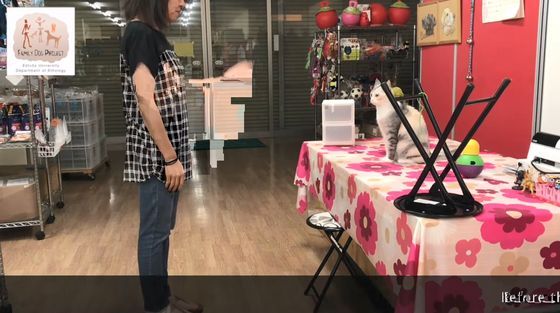
I will show you how it makes a full turn on the spot.
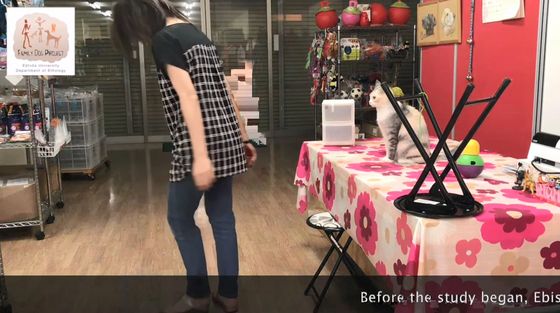
When Mr. Higaki who finished turning stops moving ...
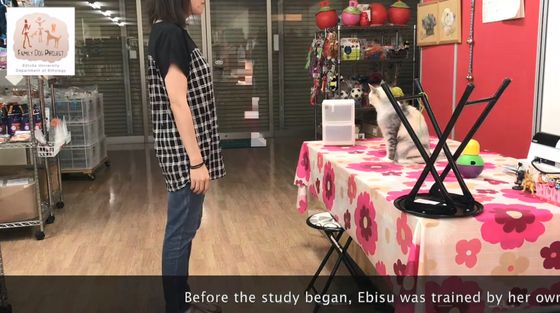
Ebisu swirled around on the spot, imitating Mr. Higaki's actions.

Higaki who saw the situation made a small guts pose ...

I gave Ebis a snack. Mr. Higaki succeeded in training Ebisu by giving a snack as a reward that imitated his behavior well.
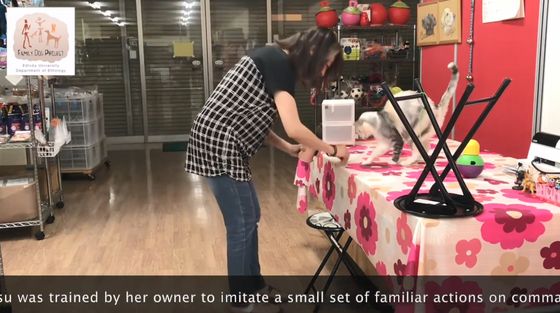
If you show the string tied to the chair on the table in addition ...

Ebisu also added a string.

Besides, the action of opening a plastic drawer ...

Ebisu also imitated the movement of stretching his back to show his stomach. As a result of conducting a total of 16 trials over several days, Ebis succeeded in imitating Mr. Higaki's behavior 13 times (81.2%).
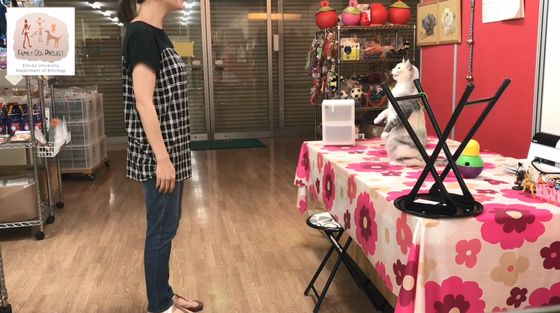
Also, in one trial, Mr. Higaki showed the action of touching the box.
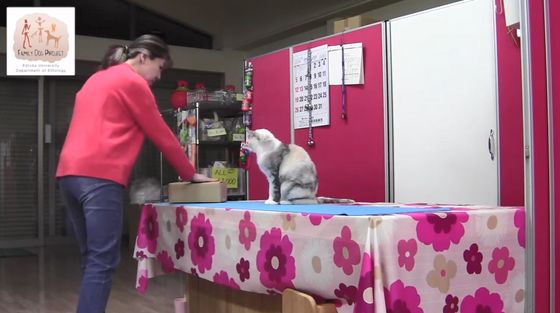
On the other hand, Ebisu brilliantly touched the box with his front legs and succeeded in imitating the movement.
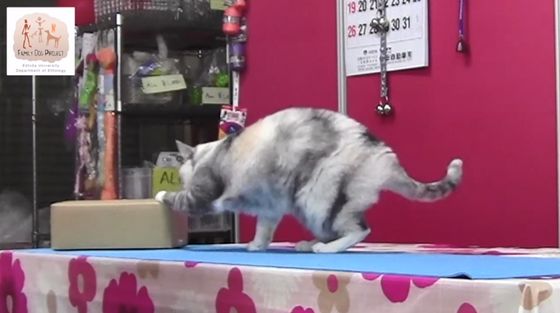
In another attempt using the same box, Mr. Higaki requested that he imitate the action of 'rubbing his face against the box.'
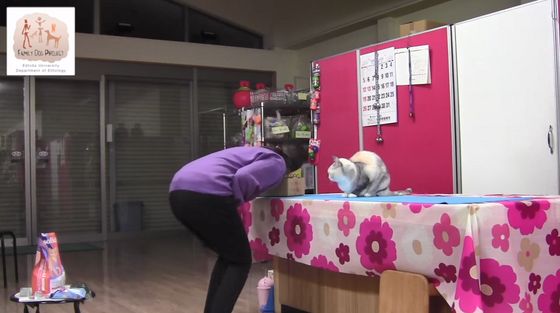
Then Ebis rubbed the box with his face, as Mr. Higaki did. This shows that Ebis had a firm grasp of parts of the human body. A series of experiments were conducted in 2019, but Ebisu died of kidney disease in June 2020.
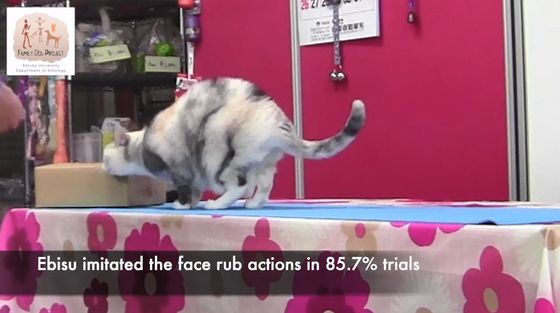
So far, dolphins, parrots, apes, killer whales, etc. have been reported as animals that can imitate human behavior, and the case of Ebis suggests that similar abilities may occur in the early stages of animal evolution. 'I don't think Ebis was a genius,' Fugazza said, and believes that most other cats are likely to imitate humans as well.
Not all researchers are convinced of the results of this study, and some have negative views. Claudio Tennie, who studies the cognitive function of dogs and primates at Eberhard Karls University in Tübingen , said the case of Ebisu is the result of training and not all cats have similar abilities innately. Pointed out. He also said that the imitation of cats may only be 'overwriting the owner's scent with his own scent', 'I can't be sure we are seeing the true imitation.' It was.
Meanwhile, Kristyn Vitale, an ethologist at Unity University , is one of the researchers who appreciate the results of this study. 'This is really interesting. People consider cats to be'lonely and antisocial', but this study reinforces the idea that cats see us and learn from us.' And comment. In fact, Mr. Vitale's domestic cat has rang the bell by imitating Mr. Vitale's behavior, claiming that many cats may have the ability to imitate human behavior. doing.

Related Posts:







